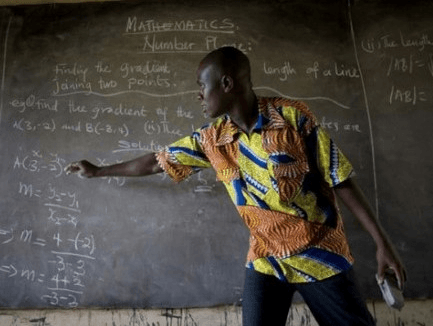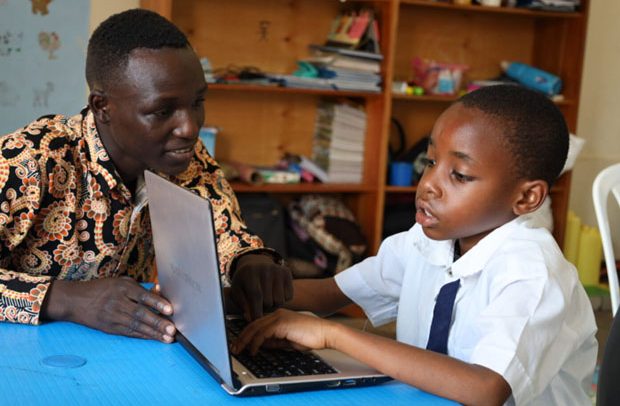
The world over, education has been a driver of various economies. This is much so when the quality of education is enhanced to meet the demands of the various sectors of the world economies.
In Africa, the quality of education seem to be dwindling over the years. Ample evidence exist in various African countries pointing to this assertion. In Ghana for instance, the World Bank posits that, about 56% of Ghana's human capital will go waste in the next 18 years because of the poor quality of the country's education system.
Although various factors account for the falling standards of education, one key issue that has been identified for this trend is examination malpractice. Examination malpractice connotes any form of action or inaction that gives a student an undue advantage over his/her colleagues.
This paper will attempt reviewing a number of such practices that are unhealthy for our educational system in a bid to justify why there is a compelling need to introduce a computer based solution to the canker.
One obvious form of examination malpractice that compromise the quality of education in Africa and for that matter Ghana, is examination leakages. This refers to any activity that gives a student prior knowledge of the questions to be examined, before the scheduled examination date.
Examination leakages are usually attributed to lecturers and or examination officials who by accident or intentionally make available the given questions to the students. Much as this is widespread among African intuitions of learning, there seem not to have been a programmed curative measure to tackle the issue thus, its increased effect on the quality of education within Africa.
Apart from examination leakages, students also directly copy from each other during examinations. In such instances, a colleague displays the contents of his answers to another for direct copying or whispers the answer to the other students for copying. This seem common in Ghana and is referred to as "dubbing" within the student community.
Another and very shameful form of examination malpractice is the issue of sex for marks. This is very pronounced in institution of higherlearning, where lecturers trademarks with female students for sex in a quid pro quo relationship that gradually is becoming a norm. Much as this has been attributed to institutions of higher learning, it is imperative to inform that, the creeping effect of this canker is also evidenced in basic schools across Africa.
Amongst the malpractices that rears their heads within the education system of our continent is the issue of impersonation; a situation when a different person sits for an examination for another. This seem to be rampant with the West African Examination Council, with ample media evidences pointing to this assertion.
Usually, the hired person is assumed to have a better understanding of the subject area and paid a sum for the "job". In a number of instances, such culprits have been arrested and have faced the full rigor of the law, while it is uncertain, as to the number of such incidences that went unnoticed. One obvious consequence of this, is that, students who benefit from the scheme clearly do not merit the grades they made and as such endangering their practices in any sphere of national life that they are engaged in after school.
Worth noting is the fact that, some students sometimes bring in foreign materials for the purposes of extracting answers for the examination. Research shows that, mostly such materials are kept in their socks, brassier, or printed on their laps or palms. An advance form of this exist when students store answers on their mobile phones and transfer to each other via watsapp etc.
Whiles the above seem to be exclusively products of students cheating in examination, persons or institutions expecting to ensure the proper examining of students sometimes are found to be aids to these malpractices. It is not uncommon to hear of invigilators aiding students by either not stopping malpractices in examination halls or sometimes, aiding students by bringing in materials to them in examination rooms. This aid in our opinion is the most unethical form of academic corruption, giving that, those expected to curb the menace are rather involved in it.
CONSEQUENCES
The consequences of examination malpractices are unlimited; be it to the individual, the institutions in question, society in general and the nation within which the malpractices are ripe. The very obvious of these is what has been captured by the World Bank this year - dwindling standards of education. It is important to stat that, with dwindling standards of education comes the hazard of improperly trained graduates not being able to perform as required of them in industry. Primarily, industry will rely on good human resources for productivity, thus if the human resources churned out of our education system are poor, it negatively effects industry and as such the economy at large.
Why Computer Based Solutions
Ample evidence exist that, many stakeholders have made diverse attempts at curbing examinationmalpractices. These efforts though huge, seem to have seen minimal effects on curbing the menace. It seem to us, the human factor that has characterized these initiatives at solving the problem rather heightens the problem. Basically so because, humans are not mechanical and can be influenced based on their need at a time. There is therefore the need for a system that is devoid of influence - a computerized system to solve the problem.
Conclusion
At the floor of discussion at the 10thIntentional Conference on Quality Assurance in Higher Education in Africa, a holistic view of the concept of academic corruption was tabled. African scholars including Professor Peter Okebukola, Professor JumaShabani, Professor Etienne Ehile and Fred Awaah, established that, the consequences of the canker especially on Africa's higher education is daring. In finding solutions, they agreed that, a holistic way forward, would be using technology to curb the daring consequences of the canker on the continent.
Fred Awaah
University of Professional Studies - Accra
Read Full Story


















Facebook
Twitter
Pinterest
Instagram
Google+
YouTube
LinkedIn
RSS